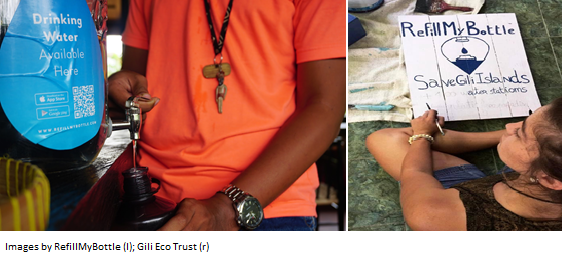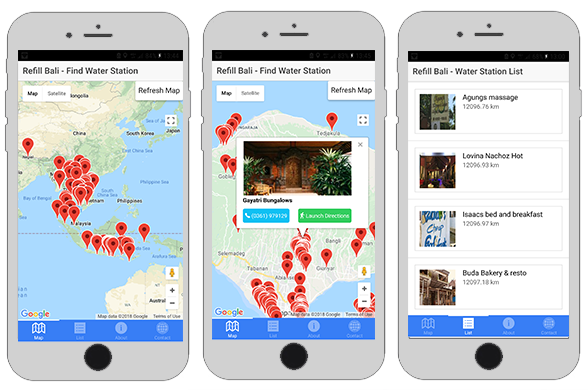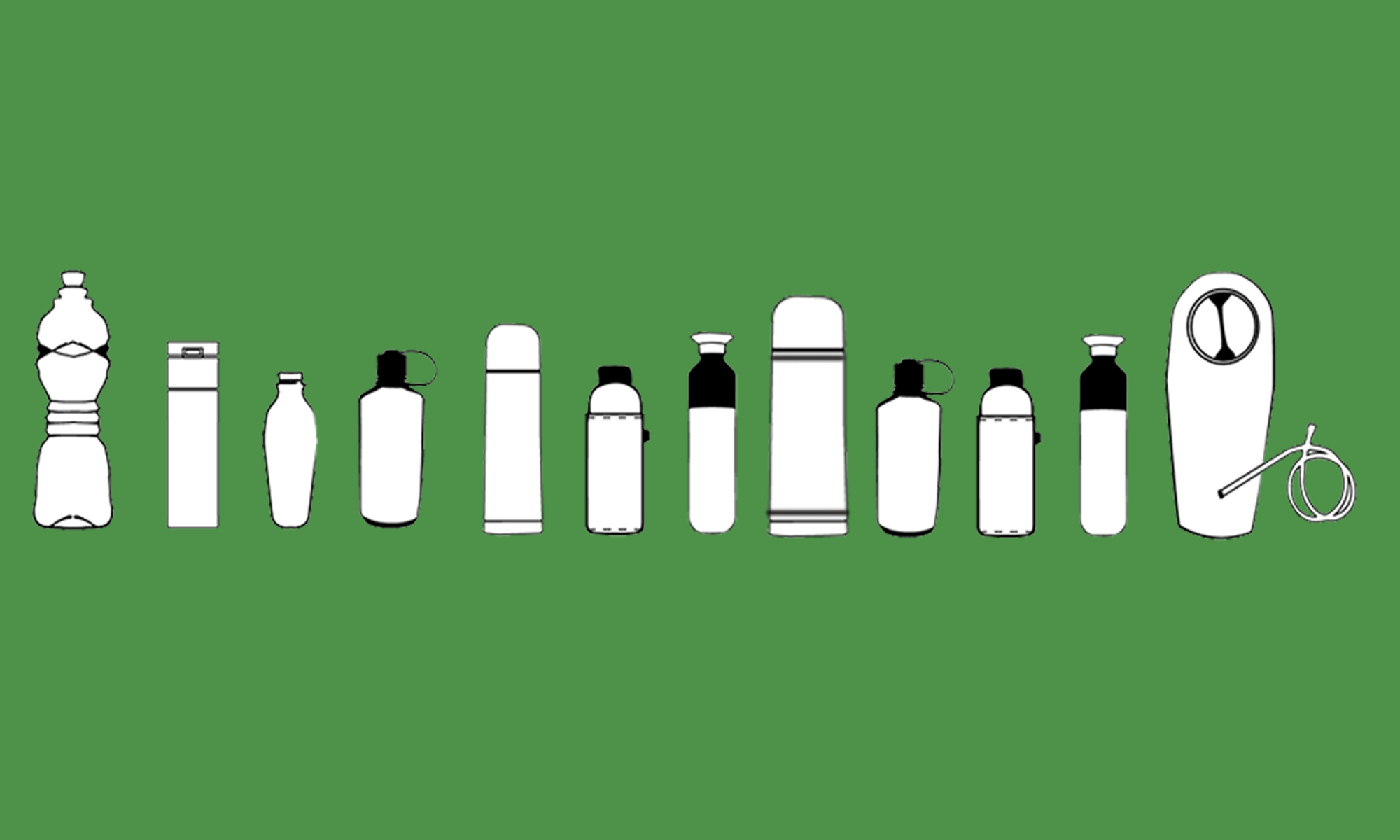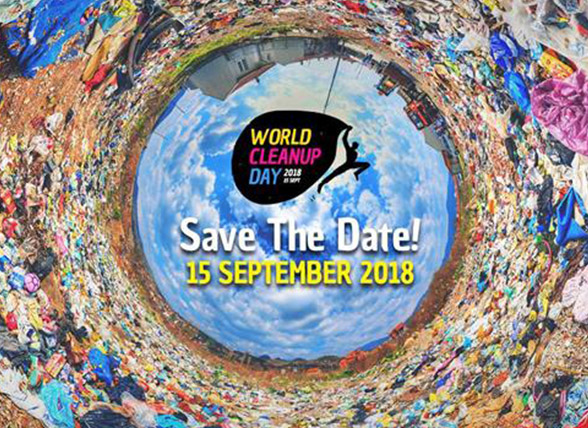In our previous blog we analysed different water refill apps. One app that stood out was RefillBali, which shows over 700 refill stations across Indonesia and some parts of South-East Asia. We were amazed how much this organisation has achieved in a short time. How do they work? And what are their challenges? Read our interview with Christine Go, project manager at RefillMyBottle.

INTERVIEW WITH CHRISTINE GO (C) BY HELLA HEKKELMAN (H)
H: When and how did RefillBali started?
C: RefillBali was initiated by Alex Tsuk and the BGreener Community around 1,5 years ago. Together with some other sustainable businesses owners, they built a network of water refill stations on Bali. The network is expanding to neighbouring islands in Indonesia as well as other countries, so the name was evolved to RefillMyBottle.
H: And for you personally, why did you want to work for RefillMyBottle?
C: As a part of my master degree in Climate Change and development, I took a research on Indonesian students’ behaviour towards the use of plastic bottles. One thing I discovered is that Indonesian students tend to bring their own reusable bottles when they live in the UK, yet not in Indonesia itself. This is due to the absence of refill facilities and tap water is not drinkable in Indonesia. When I came back and found out about this initiative, I wanted to apply immediately.
H: Can you tell me something about the plastic pollution in Bali?
C: Bali is an island that tourism has impacted in myriad ways. Over 5 million travellers visit Bali every year, staying in Bali for an average of 4 days. Tourists consume, on average, 2 litres of water each day. With each tourist using around 4 half-litre bottles a day, over 6 million disposable plastic bottles are used and discarded every month in Bali alone. And the numbers are only increasing. The lack of waste management systems means that these water bottles end up in landfills, the ocean, or are burned which creates toxic fumes. It’s clear that the problem needs to be tackled at the source by reducing consumption of plastic water bottles.
H: That’s an urgent problem indeed. Therefore we need to have many refill stations. How do they work?
C: Any businesses can register themselves as RefillStation on our website. They can choose the type of water they want to offer: gallons or filtered, as long as it’s safe to drink. They can give free refills or charge a small fee, ideally not more than the cost of plastic bottled water in shops.

THE REFILL BALI APP
H: I really like your app. How do you connect refill points to the app?
C: Thank you. The app shows all the businesses who have registered as refill stations through our system. We have recently integrated our map with refill stations from a number of similar projects, such as Refill Not Landfill and Luang Prabang – Handle with Care. For instance, if people open the Refill Not Landfill, they will see the RefillMyBottle stations, and vice versa. EXO Foundation and KHIRI Reach, as part of Impact Vietnam, are now taking the lead in expanding the RefillMyBottle network in Vietnam.

H: The users of the refill stations, are they mainly locals, tourists or both?
C: We work within the sustainable tourism scope together with other tourism businesses and organisations. For now, most of the refill stations are located in tourist areas with travelers being our main target group. However, we hope that in time this initiative can be brought to the local level as well.
H: What challenges do you face?
C: Limited resources. Right now, we are only a team of three people working remotely for RefillMyBottle, and some of us are working on a part-time basis so we can only grow so much. We need your help to bring this initiative to the next level. You can support us by helping spread the words about RefillMyBottle in your local community or through our fundraising page.
H: Let’s hope you can find a way to deal with this. What are your future plans?
C: Imagine a world you can explore without ever buying a plastic bottle. We are hoping to create this world. Mapping places around the global where people can refill their water bottle.
H: That would be great. Could we from Refill Ambassadors also add new refill stations to your app? And what about public fountains?
C: Yes, absolutely! We are very happy to grow the refill stations network. You can do so by completing our online sign-up form which can be found at our website. With the new app people can also make suggestions for public fountains and we will upload them onto the map.
H: Do you have tips for us, Refill Ambassadors?
C: Engage with local organisations who know the community better. We work together with a number of organisations who take the lead of this initiative at their local community, andwhat a coincidence because we call them the ‘refill ambassadors’, just like you!
H: We’ll keep that in mind, thanks. Last question: we talked about your approach, challenges and future plans. What do you dream about?
C: I hope that at some point we don’t need an app anymore to refill, because you can find refill stations just on every corner. I hope that bringing a reusable bottle and refill will become the norm. But right now to have the app is a good tool to create awareness and help people find refill points.
H: Terimah kasih! Good luck with RefillMyBottle.
C: You too, thank you so much!
TWO PROJECTS, ONE GOAL
It turns out that Refill Ambassadors and RefillMyBottle have many things in common. The conversation with Christine has been so nice. To me it felt like calling a close friend, even though we’d never met before and there is twelve thousand kilometer between us. I am looking forward to collaborate with her and the RefillMyBottle team in the near future. Stay tuned!
DOWNLOAD THE APP & START REFILLING
If you want to support RefillMyBottle, download the app and follow them on facebook. And of course, carry a refillable bottle with you all the time.

